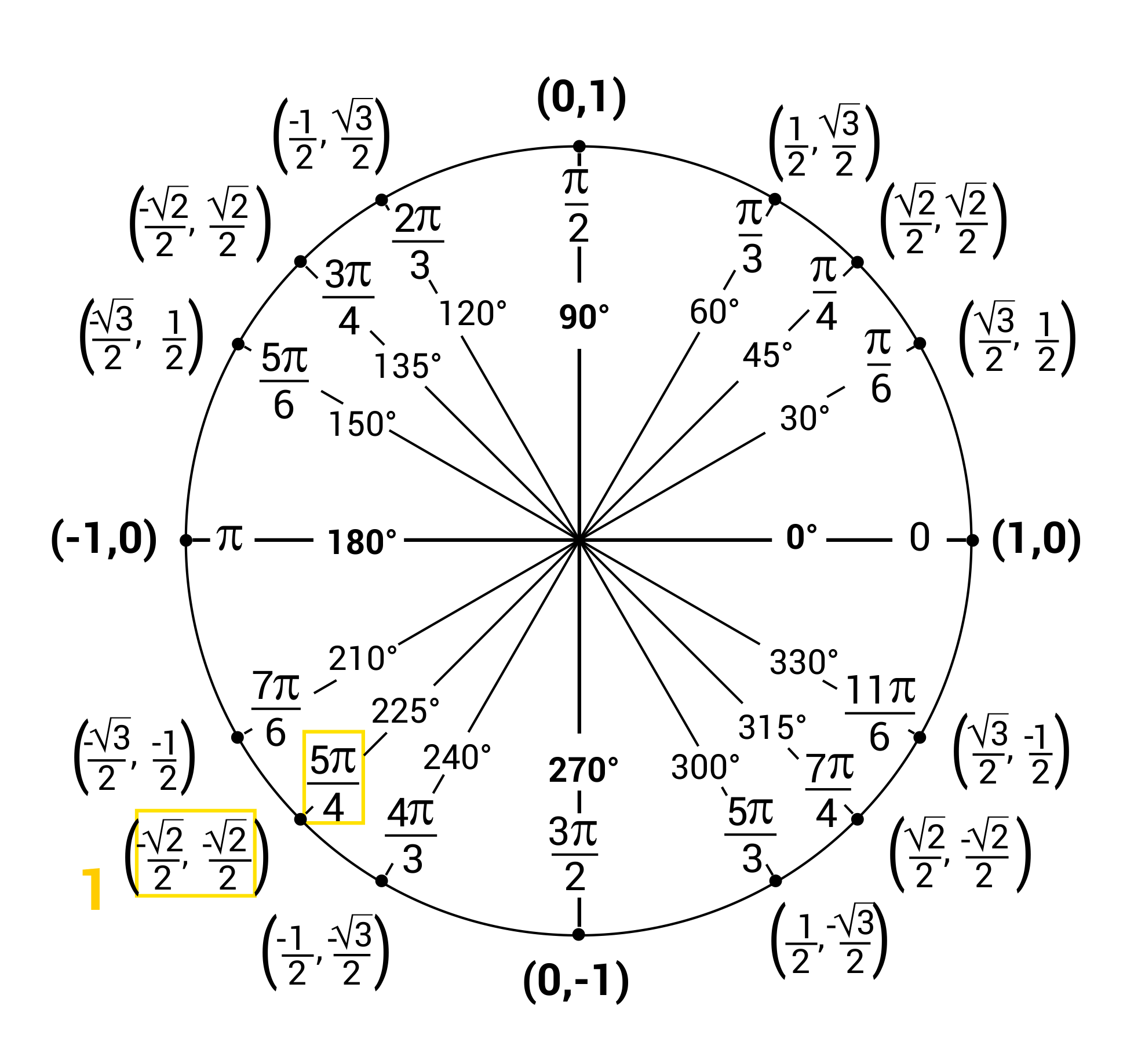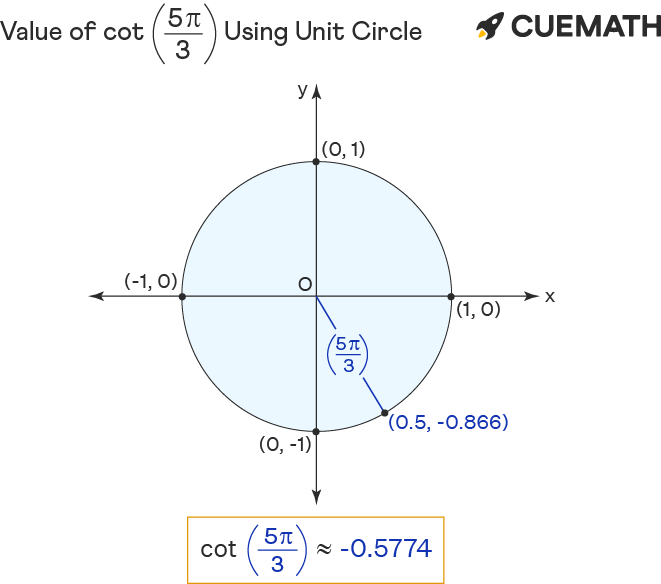What Is The Reference Angle For 5Pi 3 - Since 5π/3 radians is more than π (180°), it is located in the fourth quadrant of the unit. The angle is, ⇒ 5π / 3. The latter is known as the vertex of the angle and the rays as the sides, sometimes as the legs and sometimes the arms of the angle. The reference angle for 5π/3 is π/3. The reference angle of 3π/4 will be π/3. Given, angle in radians = 5π/3. Here, we can clearly see that. To find the reference angle for 5π/3, we need to determine the equivalent angle within one full. The angle 5pi/3 is in the fourth quadrant (meaning cosine is positive while sine & tangent are negative), and its reference angle is 60 degrees with respect to the horizontal. Therefore the correct option is b.
The latter is known as the vertex of the angle and the rays as the sides, sometimes as the legs and sometimes the arms of the angle. Here, we can clearly see that. The angle 5pi/3 is in the fourth quadrant (meaning cosine is positive while sine & tangent are negative), and its reference angle is 60 degrees with respect to the horizontal. To find the reference angle for 5π/3, we need to determine the equivalent angle within one full. The reference angle for 5π/3 is π/3. The angle is, ⇒ 5π / 3. Therefore the correct option is b. Given, angle in radians = 5π/3. The reference angle of 3π/4 will be π/3. Since 5π/3 radians is more than π (180°), it is located in the fourth quadrant of the unit.
The angle is, ⇒ 5π / 3. The reference angle for 5π/3 is π/3. The reference angle of 3π/4 will be π/3. Given, angle in radians = 5π/3. Here, we can clearly see that. The angle 5pi/3 is in the fourth quadrant (meaning cosine is positive while sine & tangent are negative), and its reference angle is 60 degrees with respect to the horizontal. Therefore the correct option is b. The latter is known as the vertex of the angle and the rays as the sides, sometimes as the legs and sometimes the arms of the angle. To find the reference angle for 5π/3, we need to determine the equivalent angle within one full. Since 5π/3 radians is more than π (180°), it is located in the fourth quadrant of the unit.
Unit Circle Practice Worksheets
Since 5π/3 radians is more than π (180°), it is located in the fourth quadrant of the unit. The reference angle for 5π/3 is π/3. The latter is known as the vertex of the angle and the rays as the sides, sometimes as the legs and sometimes the arms of the angle. The reference angle of 3π/4 will be π/3..
What is the reference angle and cosine of StartFraction 7 pi Over 6
The latter is known as the vertex of the angle and the rays as the sides, sometimes as the legs and sometimes the arms of the angle. The reference angle for 5π/3 is π/3. Here, we can clearly see that. To find the reference angle for 5π/3, we need to determine the equivalent angle within one full. Since 5π/3 radians.
The reference angle for (5pi)/4 is pi/4 , which has a terminal point of
Since 5π/3 radians is more than π (180°), it is located in the fourth quadrant of the unit. To find the reference angle for 5π/3, we need to determine the equivalent angle within one full. The latter is known as the vertex of the angle and the rays as the sides, sometimes as the legs and sometimes the arms of.
for this special angle, draw the angle and find the reference angle t
Therefore the correct option is b. Given, angle in radians = 5π/3. The latter is known as the vertex of the angle and the rays as the sides, sometimes as the legs and sometimes the arms of the angle. Here, we can clearly see that. The angle is, ⇒ 5π / 3.
Ex Sine And Cosine Values Using The Unit Circle Multiples, 54 OFF
The reference angle for 5π/3 is π/3. To find the reference angle for 5π/3, we need to determine the equivalent angle within one full. The reference angle of 3π/4 will be π/3. Therefore the correct option is b. Given, angle in radians = 5π/3.
Cot 5pi/3 Find Value of Cot 5pi/3 Cot 5π/3
The reference angle of 3π/4 will be π/3. The angle is, ⇒ 5π / 3. Given, angle in radians = 5π/3. The reference angle for 5π/3 is π/3. The latter is known as the vertex of the angle and the rays as the sides, sometimes as the legs and sometimes the arms of the angle.
Angle Of Rotation Examples
The latter is known as the vertex of the angle and the rays as the sides, sometimes as the legs and sometimes the arms of the angle. The reference angle for 5π/3 is π/3. Since 5π/3 radians is more than π (180°), it is located in the fourth quadrant of the unit. Given, angle in radians = 5π/3. The reference.
Reference Angles NBKomputer
Therefore the correct option is b. The reference angle for 5π/3 is π/3. The angle is, ⇒ 5π / 3. Here, we can clearly see that. Since 5π/3 radians is more than π (180°), it is located in the fourth quadrant of the unit.
pi/3 is the reference angle for A. 2pi/3 B. 15pi/3 C. 7pi/3 D. 19pi/3
Given, angle in radians = 5π/3. Since 5π/3 radians is more than π (180°), it is located in the fourth quadrant of the unit. To find the reference angle for 5π/3, we need to determine the equivalent angle within one full. The angle 5pi/3 is in the fourth quadrant (meaning cosine is positive while sine & tangent are negative), and.
inverse trigonometric functions and reference angles for the following
The latter is known as the vertex of the angle and the rays as the sides, sometimes as the legs and sometimes the arms of the angle. Given, angle in radians = 5π/3. To find the reference angle for 5π/3, we need to determine the equivalent angle within one full. The angle 5pi/3 is in the fourth quadrant (meaning cosine.
The Reference Angle Of 3Π/4 Will Be Π/3.
Given, angle in radians = 5π/3. The angle is, ⇒ 5π / 3. Since 5π/3 radians is more than π (180°), it is located in the fourth quadrant of the unit. The angle 5pi/3 is in the fourth quadrant (meaning cosine is positive while sine & tangent are negative), and its reference angle is 60 degrees with respect to the horizontal.
The Reference Angle For 5Π/3 Is Π/3.
The latter is known as the vertex of the angle and the rays as the sides, sometimes as the legs and sometimes the arms of the angle. To find the reference angle for 5π/3, we need to determine the equivalent angle within one full. Therefore the correct option is b. Here, we can clearly see that.









